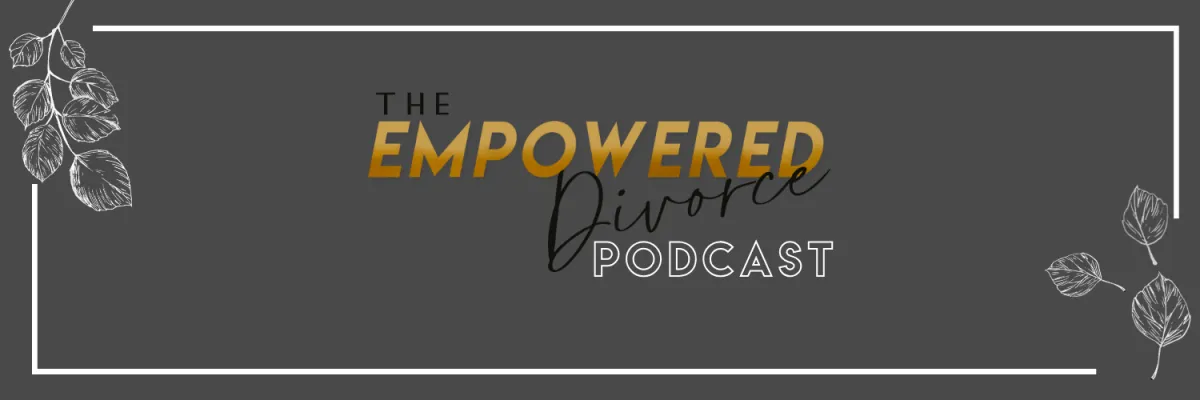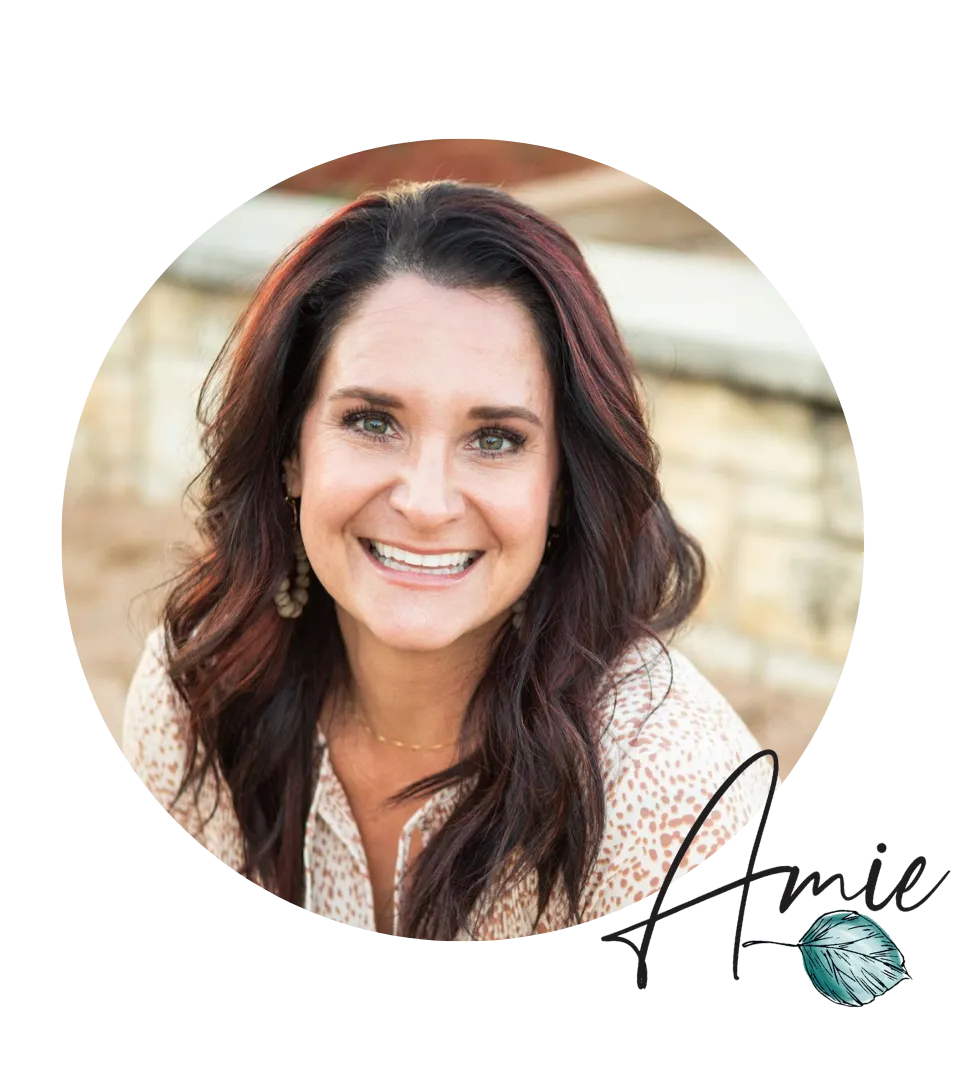
Loving Yourself After Betrayal & Divorce: 5 Steps You Can Start Practicing Today
What does real self-love look like after betrayal and a lie-saving divorce? It's not bubble baths and retail therapy. It's not pretending you're fine.
In this episode, I share five powerful ways you can start practicing self-love today in the middle of healing. These tools go beyond surface-level self-care and get to the root of rebuilding our relationship with yourself -through alignment, boundaries, resilience, and compassion.
Read Full Transcript
Hello, hello, my amazing, beautiful listeners. Welcome. Thank you for being here with me today. Thank you to those of you who have been leaving reviews and following, clicking the Follow button. It has helped. Please, if you have not already done so, it would be so helpful to continue spreading the word and getting this message out there.
For those of you who are going through a life-saving divorce, divorcing due to betrayal, divorcing because the life that you thought you were living—the reality that you thought you were living—has suddenly become a completely different reality, a completely different story. Many times the shock of all the lies, the shock of the lack of integrity from this person you thought you knew… that shock can remain with us for quite some time.
I've given this analogy different times over the years of doing this podcast. Yet experiencing this to this degree, to this level, where the divorce most oftentimes isn’t amicable—while you're going through the thick of divorce, you're still wrapping your head around who this person is. You're still finding yourself confused over who this person really is. Oftentimes they're presenting to be someone completely different, and other people are still believing this masked person. It can also create some additional confusion around who this person really is.
All that said, I just want to validate that the kind of divorce most of you listeners are having is different. That in and of itself can be really frustrating, especially when people don’t really get it or understand. Being able to make this podcast more visible for those who are confused, who don’t have a language yet to really describe their own experience and why it feels so different and maybe why family don’t understand—when you just take some time to click follow or leave a review, it really helps other women get this message. So I really appreciate you taking the time to do that.
I want to start today by speaking to the part of you that maybe feels done. Not done as in healed and ready to run a marathon, but done as in: “I have been through so much, I don’t even know what’s left for me.”
When you stood at the altar, or when you moved into that home, or when you built a life with someone who you believed you were co-writing a story with, you thought you were both maybe on the same page. Maybe sometimes you felt like you were on different pages, but ultimately you believed you were co-authors to this story—to your love story, to your life, to creating the life you believed your partner was on the same page with.
And then one day, without your consent, the pen was ripped out of your hand and suddenly you’re staring at the pages wondering: “Huh? What just happened? Is that it? Is this really it? Is this book really over, and is this really how my story ends?”
I know that feeling all too well. The one where your dreams that you built now live in past pages of that book. The grief that floods you when you realize the future that you planned together doesn’t exist anymore. It is so real. It is so heavy.
And that’s why you are here today, and I want you to know: nothing is wrong with you. You are not weak for feeling this way.
When you go through betrayal and divorce, oftentimes your nervous system is stuck in that last chapter. Trying frantically to flip through the past pages, figuring out: “Wait, where did we get so off track? Maybe we were a page or two apart, but I had no idea that we were this far apart.” You might find yourself metaphorically flipping through those past pages, rereading and scouring, trying to figure out how it all went wrong. How in the world is this book ending this way?
And oftentimes many of you are rereading the painful pages over and over, trying to remind yourself: “Okay, wait. Yes, that happened. Okay, wait. Yes, that was wrong that that happened.” Because you’re also trying so hard to stay in reality.
I remember reading my journal entries over and over and over. I remember reading through past text messages that were really, really abusive and degrading. Not because I loved reading them, but in some way—it makes sense to me psychologically now—it helped me go: “Okay, yes, this is real. Things are not okay. He’s not okay. He’s not safe.” Because you’re still trying to make sense of all the pages of the past.
Your mind believes that if you can just figure him out, figure it out, just understand the why enough—then you’ll be able to change the ending. But here’s the thing: you cannot change the ending of that last chapter.
In fact, the book that you thought you both were writing never existed. He was on a completely different novel.
What you can do now is turn the page. That doesn’t mean pretending that the last chapter didn’t happen. It means trusting that there’s more story ahead—that you get to be the author of it.
The human brain is an incredible storyteller. It will follow whatever script it’s given. When you start taking even the tiniest steps forward, you begin writing new lines in your story. New experiences, new choices literally rewire your brain. That’s neuroplasticity in action, and your brain’s ability to adapt, to heal, and to create something new is incredible.
The twist—the plot twist—is agency. Agency is your greatest plot twist. The single biggest predictor of healing isn’t what happened to you. It’s your ability to reclaim authorship and make even the smallest micro choices that start to align with the life you want to live.
How many of you know the book The Monster at the End of This Book about the little furry, lovable friend Grover? I think I’ve talked about him before. I’ve used this book—it’s just one of my absolute favorite books. So many beautiful analogies that we can pull from this children’s story.
But let’s talk about Grover for a minute. In this children’s book, Grover spends the entire story trying to stop the reader from turning the page because he is so terrified of what’s at the end of the book. He begs, he builds walls, he pleads—anything to avoid moving forward.
And then, spoiler alert—the monster at the end of the book? It’s him. And it was always just him.
When we’ve been through betrayal, we can become like Grover. Parts of us try to stop us from moving forward because we don’t know what’s coming. We imagine it’s going to be too scary, too painful, too uncertain.
But I want to share three principles that I think will really help you start turning the pages of your story again.
Principle one: Fear that you will absolutely feel isn’t a stop sign—it’s a compass. If the next page feels scary, it might be because growth is waiting there for you. Growth is never comfortable. It can’t be. Physiologically, when we grow our muscles, it’s sore, uncomfortable, oftentimes painful.
Principle two: You cannot skip to the ending. This is where I see a lot of clients say, “Give me the checklist. I just want to get to the end of my story. I don’t want to go through all of the pages. I don’t even want to write the pages. Can I just skip to the end?” But you can trust that the story is unfolding toward you—not the broken, betrayed version, but the higher-self you.
We don’t want to skip. There’s nothing to really skip. Because when you really do take the pen in your hand and turn the page and start writing your next chapter, the ending is always you. That is your focus: everything you are creating is with you in mind.
Principle three: Curiosity over control. Grover tried to control the reader, right? He tried to build walls, beg, plead, tell the reader: “Don’t—no, no, no, don’t turn the page!”
Healing is about softening into curiosity, not control. Control is a protector, I get it—it feels safer. But letting yourself wonder, what might happen if I keep going? What might happen if I really do step into my power, my agency, and choose for me? Even if you don’t have all the answers right now.
When you know and believe that ultimately your higher self is always at the end of the book, it lessens the fear and it helps you step into curiosity. And when we’re in curiosity, we are open to seeing more options. To wondering: What might happen if I did trust myself? What would my next right step be if I knew that I had my back? If I knew that I am at the end of my story—then what would my next step be?







Facebook
Instagram
Youtube